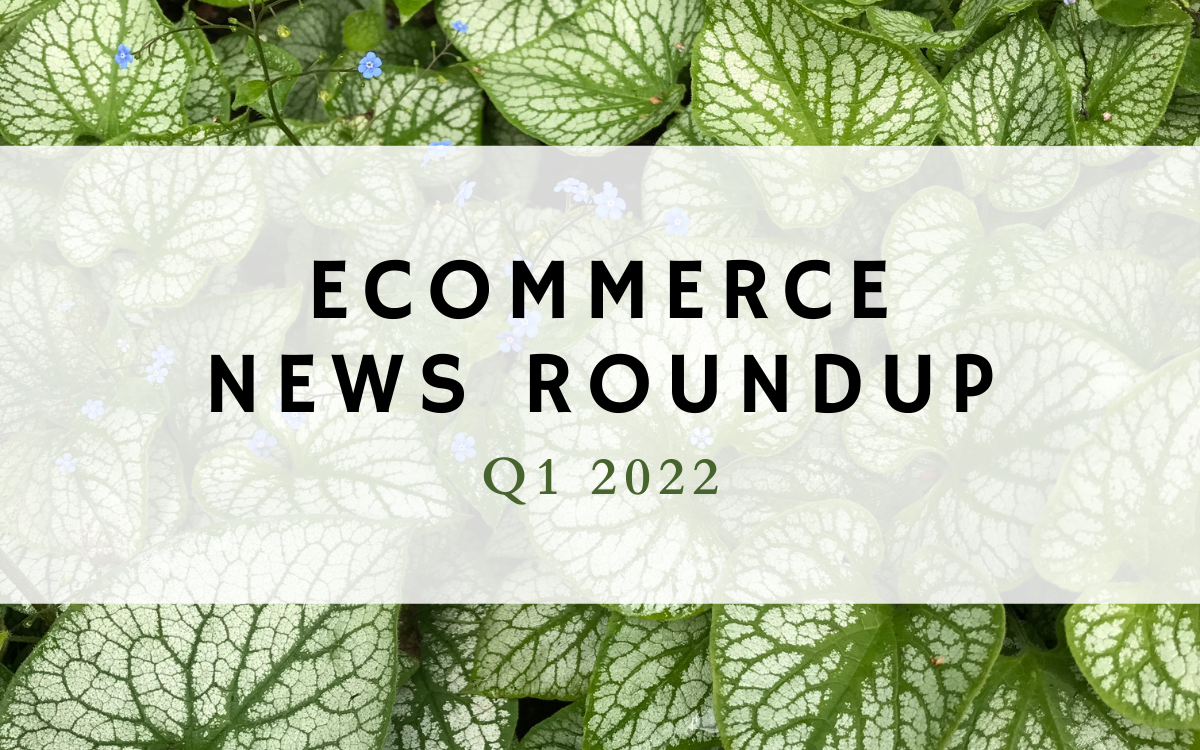
What's been happening in the ecommerce industry during the beginning of the year? Below, we take a look through the top five ecommerce news stories of the first quarter of 2022.
1. Holiday Ecommerce Hits Record High Despite 6 Billion Out-of-Stock Messages, Adobe Reports
Adobe regularly tracks out-of-stock messages across the web, but the number of such messages began to surge in the months leading up to the 2021 holiday season. At the beginning of 2022, it was reported that online consumers in the U.S. alone spent a record-breaking $204.5 billion, even as ecommerce businesses experienced supply chain disruptions caused by the pandemic. It seems that shoppers are more willing than ever to abandon an online store that doesn't have the product they're looking for and find it—or a substitute—elsewhere in the interest of time. (Read the full article on Forbes.)
2. How The Metaverse Will Reshape Ecommerce Forever
The internet has been abuzz with talk of the metaverse for years, but new technologies have accelerated its arrival—a fact that savvy ecommerce businesses can and should look into cashing in on. Some online retail giants are already incorporating aspects of the metaverse into their brands, from Warby Parker's virtual try-on app to Amazon's room decorator AR. As the metaverse expands, ecommerce businesses will be impacted greatly as online and offline commerce merge. (Read the full article on Forbes.)
3. Made-To-Order Online Shopping Is Here, But It’s Just One Piece Of Retail’s Sustainability Puzzle
As shoppers become more invested in practicing sustainable consumerism, ecommerce businesses must find ways to fit themselves into the category of "responsible retail." Made-to-order practices are helping to reduce overproduction, but other aspects of ecommerce pose their own environmental challenges, including excess disposable packaging, high emissions from rapid shipping, and additional emissions from online returns. While ecommerce businesses can do their part to adopt sustainable practices, online shoppers too must change their approaches to and expectations of buying products online. (Read the full article on Forbes.)
4. Russia-Ukraine conflict could lead to global ecommerce disruptions
In addition to the humanitarian crisis, Russia's invasion of—and continued assault on—Ukraine has caused reverberating effects within the ecommerce industry. Major companies vital to ecommerce operations like eBay, Visa, MasterCard, UPS, FedEx, and DHL have all suspended their services in the region, and oil and freight costs have increased dramatically for the rest of the world. The ecommerce industry is certain to face additional challenges as attacks continue. (Read the full article on Freightwaves.)
5. Pandemic’s Ecommerce Surge Proves Less Persistent, More Varied
The International Monetary Fund, in partnership with MasterCard and Harvard Business School, together conducted a study into online retail spending in relation to the pandemic. As has been widely reported, online spending did increase dramatically during the pandemic, but has fallen in the months since economies have begun to re-open and expand in-person offerings. The study also found that emerging economies saw less dramatic increases, yet more staying power in the realm of ecommerce than economies where ecommerce was already prevalent. (Read the full article on the IMF blog.)











